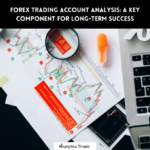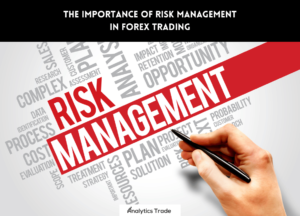What is Market Sentiment?
Market sentiment is the overall attitude of investors towards a particular security or market. It is a measure of the collective opinion of investors and can be used to gauge the direction of the market. It is important to understand how sentiment affects the value of a currency, as it can have a significant impact on the volatility of a currency pair.
How Does Market Sentiment Affect Currency Volatility?
When market sentiment is positive, investors are more likely to buy a currency, which can lead to an increase in its value. Conversely, when market sentiment is negative, investors are more likely to sell a currency, which can lead to a decrease in its value. This can cause the currency pair to become more volatile, as the value of the currency can fluctuate rapidly.
How Can Traders Use Market Sentiment to Their Advantage?
Traders can use market sentiment to their advantage by looking for opportunities to buy or sell a currency when sentiment is in their favor. For example, if market sentiment is positive, a trader may look to buy a currency, as they expect the value to increase. Conversely, if market sentiment is negative, a trader may look to sell a currency, as they expect the value to decrease.
What Factors Influence Market Sentiment?
There are a number of factors that can influence market sentiment, including economic data, political events, and central bank policies. Economic data, such as GDP growth, employment figures, and inflation rates, can have a significant impact on market sentiment. Political events, such as elections and referendums, can also affect market sentiment. Finally, central bank policies, such as interest rate decisions and quantitative easing, can also have an impact on market sentiment.
How Can Traders Monitor Market Sentiment?
Traders can monitor market sentiment by keeping an eye on economic data, political events, and central bank policies. They can also use technical analysis tools, such as trend lines and moving averages, to identify changes in market sentiment. Finally, traders can use sentiment indicators, such as the Commitment of Traders report, to get a better understanding of market sentiment.
What Are the Risks of Trading Based on Market Sentiment?
Trading based on market sentiment can be risky, as sentiment can change quickly and unexpectedly. Therefore, it is important for traders to be aware of the risks associated with trading based on market sentiment. Additionally, traders should be aware of the potential for market manipulation, as some traders may attempt to manipulate market sentiment in order to profit from the resulting price movements.
Conclusion
The effect of market sentiment on currency volatility can be significant, as sentiment can have a major impact on the value of a currency. Therefore, it is important for traders to understand how sentiment affects the value of a currency and how they can use this information to their advantage. Additionally, traders should be aware of the risks associated with trading based on market sentiment and should be aware of the potential for market manipulation.
Answers and Questions
Q: What is Market Sentiment?
A: Market sentiment is the overall attitude of investors towards a particular security or market. It is a measure of the collective opinion of investors and can be used to gauge the direction of the market.
Q: How Does Market Sentiment Affect Currency Volatility?
A: When market sentiment is positive, investors are more likely to buy a currency, which can lead to an increase in its value. Conversely, when market sentiment is negative, investors are more likely to sell a currency, which can lead to a decrease in its value. This can cause the currency pair to become more volatile, as the value of the currency can fluctuate rapidly.
Q: How Can Traders Use Market Sentiment to Their Advantage?
A: Traders can use market sentiment to their advantage by looking for opportunities to buy or sell a currency when sentiment is in their favor. For example, if market sentiment is positive, a trader may look to buy a currency, as they expect the value to increase. Conversely, if market sentiment is negative, a trader may look to sell a currency, as they expect the value to decrease.
Q: What Factors Influence Market Sentiment?
A: There are a number of factors that can influence market sentiment, including economic data, political events, and central bank policies. Economic data, such as GDP growth, employment figures, and inflation rates, can have a significant impact on market sentiment. Political events, such as elections and referendums, can also affect market sentiment. Finally, central bank policies, such as interest rate decisions and quantitative easing, can also have an impact on market sentiment.
Q: How Can Traders Monitor Market Sentiment?
A: Traders can monitor market sentiment by keeping an eye on economic data, political events, and central bank policies. They can also use technical analysis tools, such as trend lines and moving averages, to identify changes in market sentiment. Finally, traders can use sentiment indicators, such as the Commitment of Traders report, to get a better understanding of market sentiment.
Q: What Are the Risks of Trading Based on Market Sentiment?
A: Trading based on market sentiment can be risky, as sentiment can change quickly and unexpectedly. Therefore, it is important for traders to be aware of the risks associated with trading based on market sentiment. Additionally, traders should be aware of the potential for market manipulation, as some traders may attempt to manipulate market sentiment in order to profit from the resulting price movements.
Table
| Factor | Impact on Market Sentiment |
|---|---|
| Economic Data | Can have a significant impact on market sentiment |
| Political Events | Can affect market sentiment |
| Central Bank Policies | Can have an impact on market sentiment |
Personal Opinion
In my opinion, understanding market sentiment is an important part of successful trading. By monitoring sentiment and looking for opportunities to buy or sell a currency when sentiment is in their favor, traders can increase their chances of success. However, it is important to remember that sentiment can change quickly and unexpectedly, so traders should always be aware of the risks associated with trading based on market sentiment.










Comments